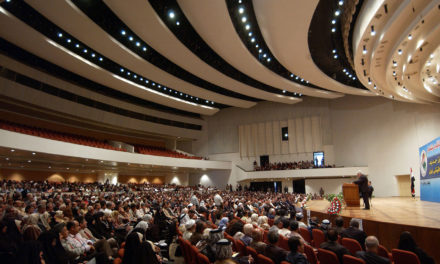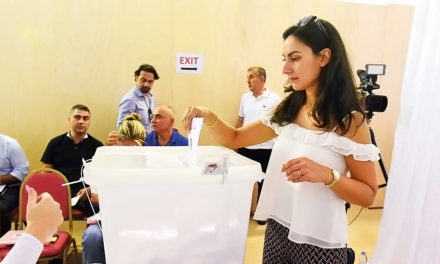Being caught in the middle of the Saudi-Iranian rivalry is one of the reasons Iraq has struggled to achieve stability after 2003. Sectarian violence was the result of this regional conflict playing out in Iraq over the last two decades, reaching its climax in a civil war in 2006. However, the Saudi-Iranian rapprochement could bring about positive change for the region, which Iraq needs to take advantage of.
On 10 March 2023, the Saudi and Iranian foreign ministers announced the resumption of diplomatic ties from Beijing. Within five months, the Saudi and Iranian embassies were reopened and high level delegations visited each other’s capital. Iraq played a crucial role in restoring relations between Tehran and Riyadh, having mediated multiple talks for more than three years in Baghdad. It was important for Iraq to reconcile two powerful states in the region which Iraq shares about two-thirds of its borders with, in addition to the historical, social, and cultural relations that link Iraq to both countries.
Saudi Arabia and Iran played out their competition in Iraq using ideology and religious identity to enlist allies. Iraq’s unstable security situation and nascent political system allowed foreign intervention with ease. In recent years, Iran has sponsored armed groups in Iraq who have threatened Saudi Arabia with military action, while Saudi Arabia has supported political parties and used media to undermine Iranian-backed politicians and stoke sectarian tensions. In addition to Iraq, several countries in the region like Syria, Lebanon, and Yemen have been caught in proxy wars due to the rivalry. Ultimately, both Iran and Saudi Arabia have realised that it was in their common interest to repair ties and stopped threatening one another in neighbouring countries.
Reconciliation between Riyadh and Tehran has had a positive and noticeable impact on Iraq. Only time will tell if this reconciliation is temporary or a permanent strategic shift. It should be a national priority for Iraq to ensure that Iran and Saudi Arabia maintain healthy bilateral relations, the same way it pushed for mediation talks in the first place. This way, it will prevent further proxy conflict, and allow Iraq to become a stable place for Iran, Saudi Arabia, and other Gulf states to invest in. Iraq has a lot of potential with assets of a large population, natural resources, a promising private sector, and a strategic location.
The Iraqi government and the political elite must avoid falling into a particular axis and focus on which area each neighbour and ally can support best. For Iran, it has a lot to offer in terms of defence expertise in drone technology and military manufacturing. There are other areas like advanced medical care. As for Saudi Arabia, it has great experience in the energy sector, as well as industrial and infrastructure projects. There are areas where both countries could support Iraq, and have an invested interest to do so, like combating climate change and developing irrigation methods with modern technologies that contribute to reducing water consumption. In the meantime, Iran uses dams and reroutes water flow which reduces the share of water for Iraq and Saudi Arabia is the leading player in dictating OPEC policy. Water and energy play a crucial part in Iraq’s economy and climate change management. If neither view Iraq with much interest, then Iraq stands to lose its importance and could lead to economic deprivation and political fallout.
With a patriotic vision and a balanced foreign policy, Iraq should be able to maintain strong bilateral relations with both Iran and Saudi Arabia, which in return should help keep relations between Tehran and Riyadh intact. There are other factors that are helping with Iran-Saudi Arabia ties, like economic ties with China and both states joining BRICS. For Iraq, which was not invited, it needs to take advantage of the regional calm first and prove itself as a reliable and stable partner, and then maybe, it can join its neighbours in global alliances like BRICS.
This essay is part of a special series – Empowering Change in Iraq: Policy Recommendations for a New Era

Ali Al-Mandalawi
Ali Al-Mandalawi is a foreign policy analyst and is focused on the Middle East and energy politics in particular. He founded an NGO focused on Human Resources development and is based in Baghdad.










